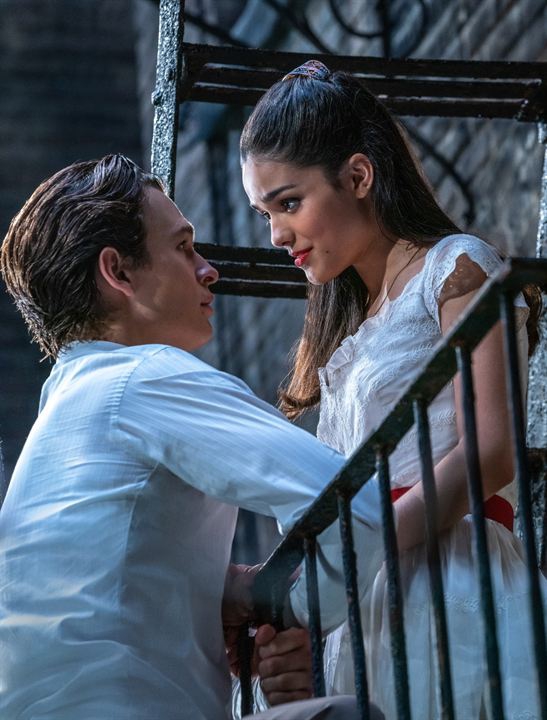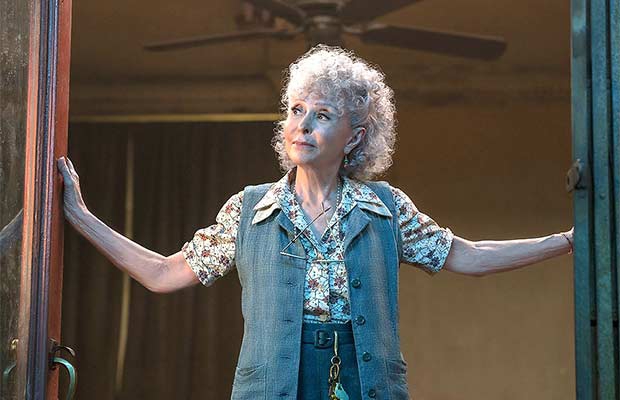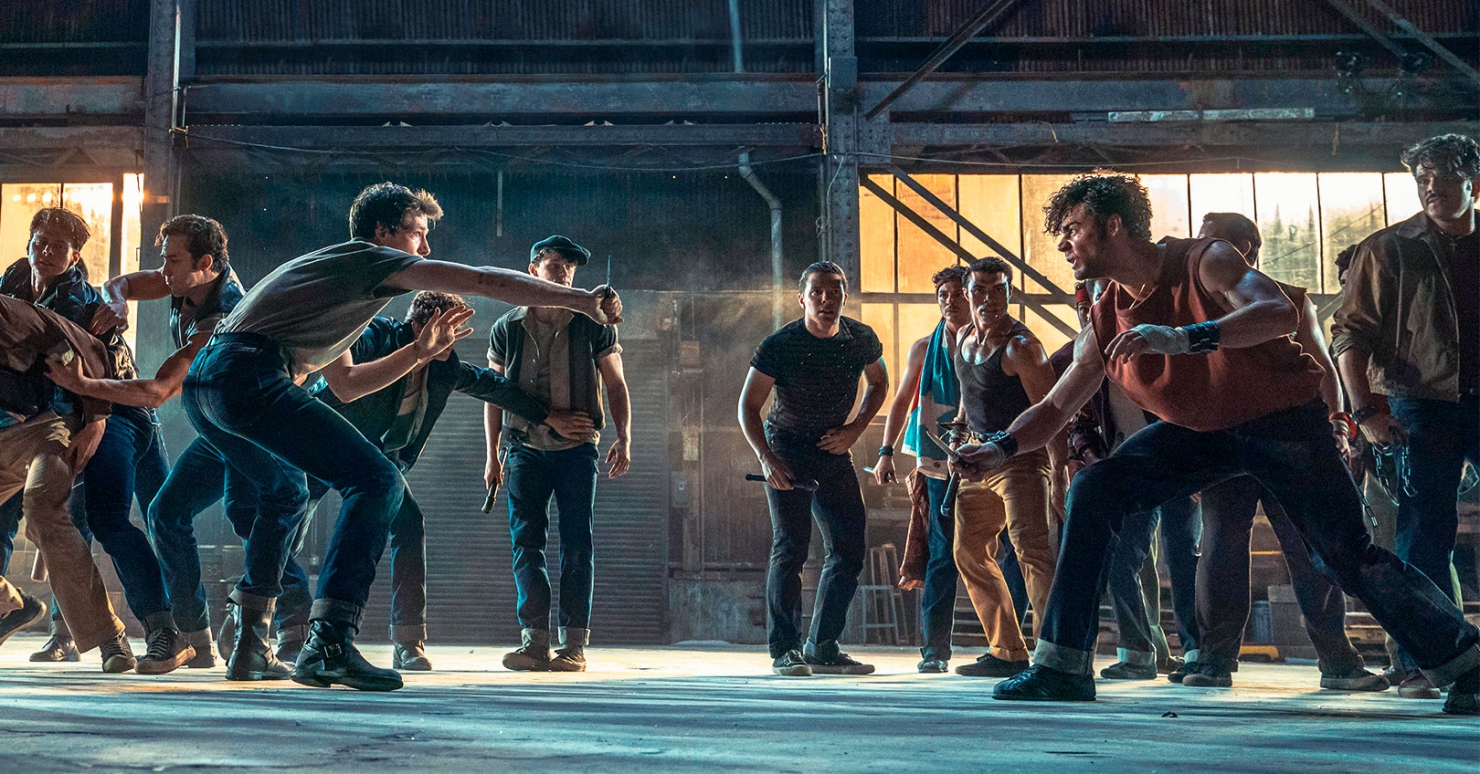
The Accommodating "Cool" of Spielberg’s West Side Story
Review“Cool,” that jazzy number from West Side Story, is one of the most accommodating songs ever written for a Broadway musical. Leonard Bernstein’s composition keeps its brazen, staccato tone but Stephen Sondheim’s incisive lyric has come to support surprisingly different storylines. From the 1957 Broadway trailblazer to Robert Wise’s lauded 1961 film and most recently in Steven Spielberg’s revisionist remake, “Cool” has been used to convey vastly different messages but manages in the process to keep its own cool.
Two years ago when we surveyed the major recording of this epic classic, a cast album of the newest Broadway revival and a soundtrack from the Spielberg film were anticipated. The revival didn’t reopen after the pandemic shutdown and to our knowledge, remains unrecorded. For similar reasons the film’s release was delayed a full year but now we have a distinctive new addition to the collection, albeit with issues that may rile those who find annoying a couple of fleeting “feel good” numbers that manage to work, just not in the score’s context.
On Broadway “Cool” was a pep talk sung by Jets leader, Riff, advising his gang to stay cool at their rumble with the Sharks. In Wise’s film Riff’s lieutenant, Ice, a character created for the film, sang it after Riff was killed in the rumble. Providing grief support and anger management, the song’s placement is also notable for the insight it gives us into the Jets women.

Tony Kushner’s new screenplay takes a more socially conscious approach to a neighborhood on the cusp of destruction to make way for the cultural hub that is now Lincoln Center. He deepens the story dramatically and “Cool” gets refitted to show how guileless hope battles nihilistic attitudes that began to fester long before the bulldozers moved in.
While the film seldom veers from this initial concept, it is never more powerfully or intimately rendered as when Tony, energized by his love for Maria, and the burned out Riff sing “Cool” as an anguished duet delineating their personal divide. “So ‘Cool’ became, in this version, that story arc,” says Mike Faist who plays Riff with poignancy and gallows humor, in an interview with Jenna Busch at slashfilm.com. “Here’s this friendship, what was. Here’s where it is at. And here’s where it’s going. It’s them breaking up, letting go of each other and just the betrayal of the both of them and how they feel with each other.” Quite a turn-around for a song intended to motivate a street gang but “Cool” is an iceberg with hidden depth like so many of the Sondheim’s peerless lyrics.
Gustavo Dudamel conducts his Los Angeles Philharmonic with meticulous yet vibrant attention to the myriad influences running through the score. (The New York Philharmonic is also credited although it isn’t apparent how the hometown orchestra was involved.) Dudamel knows his way around Bernstein so those annoying touches of the dreaded “pops” sound, showing up in “America” and “Gee, Officer Krupke” may well be the result of some insidious soundboard mixing in search of that “feel good” vibe.

The problem doesn’t stop there, though to be fair the annoyance is less so when listening to the soundtrack than watching the film. “America” is intended to convey the differing attitudes within the Puerto Rican community not only towards America but Puerto Rico as well. Here it comes off like a celebration of, well, everything and while the gorgeously orchestrated street jubilation is alluring, the number loses its bite and much of its sex appeal. Originally sung on a stoop, “Gee, Officer Krupke” is staged in an inordinately large police station and comes off like a rousing production number from the cast of “Newsies” rather than a group of disenfranchised young men and one nonbinary person dissing the authorities.
The singing however triumphs over such matters. Several of the songs were sung “live” on set rather than syncing to footage in a studio. The sense of engagement is readily apparent and it’s also reassuring to know that everyone is doing their own singing. Rachel Zegler has a voice of blissful refinement but her singing casts Maria as strong and increasingly independent, proper but hardly defined by that refined sound. Ansel Elgort’s voice, though not of commanding depth, is nonetheless winning and we feel his rapture in a disarming “Something’s Coming” and an ardent, energetic “Maria.” It would be unreasonable to expect these star-crossed lovers to create a more charmingly romantic balcony scene and “Tonight.” They are literally heaven-sent when singing their vows in “One Hand, One Heart” amidst sunlight streaming through stained glass at the MET Museum’s Cloisters.

Then there’s Ariana DeBose, Spielberg’s Oscar-winning Anita. Her brief opener to “Dance at the Gym” almost says it all but she continues to impress with her brave and tragic “A Boy Like That.” Ziegler’s response with “I Have A Love” touches deeply and their sad exchange is heightened by interspersed dialogue.
DeBose along with David Alvarez as Bernardo show grit and spirit in the aforementioned “America.” That other Oscar-winning Anita from 1961, Rita Moreno, here playing Valentina, a woman of hope among the hopeless and widow of Doc, who now runs the drug store where the Jets hang out, sings a wistful “Somewhere” with devastating fragility. Moreno rattles the cart of any lingering nostalgia with her soft and inimitable power.

Orchestrally Dudamel establishes his Bernstein credentials offering a spacious and compelling “Prologue” with orchestrations that at moments veer intriguingly from the expected. The maestro’s buoyant “Dance at the Gym” sequence is quite simply a knock-out. Further evidence of the LA Phil’s agility shows in the delicate post “Tonight” transition to Scherzo/Scherzo that is notable for the ensemble’s exquisite string work and by a pulse-pounding “Rumble” fully realizing the violent musical detail within its nimble balletic framework.
Reports that Spielberg has fixed “I Feel Pretty,” heretofore a song that perhaps only Little Richard could pull off, are all true. If you missed the film during its theatrical run, find out how the song shakes off its sugary coating via major platforms including Disney+ and HBO Max. New Yorkers and late summer visitors can find out on August 26 when a free screening of West Side Story will be presented on the plaza at Lincoln Center (a space that will be chocked full of irony as well as people) as the Metropolitan Opera launches its summer series of outdoor HD broadcasts. A grand Ariadne auf Naxos with Lise Davidsen as Strauss’s mythic heroine and Terrance Blanchard’s scorching breakthrough opera, Fire Shut Up in My Bones are among the broadcasts that run through September 5, but that’s a whole other west side story.


Comments